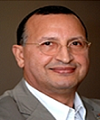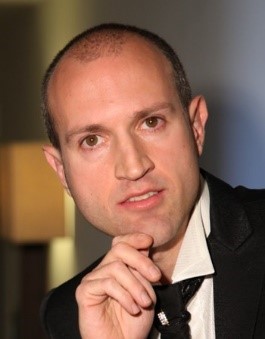Keynote Speakers
Keynote Speaker I

Prof. Latif Ladid, University of Luxembourg, Luxembourg
Founder &
President, IPv6 FORUM (www.ipv6forum.org )
Member of 3GPP PCG (Board) (www.3gpp.org)
Founding Chair, 5G World Alliance
(http://www.5gworldalliance.org/ )
Chair, ETSI IPv6 Industry Specification Group :
https://portal.etsi.org/tb.aspx?tbid=827&SubTB=827
IEEE Steering Committee Member: 5G, IoT
Chair, IEEE ComSoC IoT subcommittee
(http://cms.comsoc.org/eprise/main/SiteGen/TC_IOT/Content/Home.html/
)
Chair, IEEE ComSoC 5G subcommittee
(http://cms.comsoc.org/eprise/main/SiteGen/TC_5GMWI/Content/Home.html?refer=18312&Site_Name=TC_5GMWI
Vice Chair, IEEE ComSoC SDN-NFV subcommittee:
http://cms.comsoc.org/eprise/main/SiteGen/TC_SDN_NFV/Content/Home.html
Emeritus Trustee, Internet Society - ISOC (www.isoc.org)
IPv6 Ready & Enabled Logos Program Board
(www.ipv6ready.org)
World summit Award Board Member (www.wsis-award.org )
Research Fellow @ University of Luxembourg on multiple
European Commission Next Generation Technologies IST
Projects
Member of 3GPP2 PCG (www.3gpp2.org)
Member of UN Strategy Council
Member of Future Internet Forum EU Member States
(representing Luxembourg) Luxembourg, June 2017.
Keynote Speaker II

Prof. Dimitrios Georgakopoulos, Swinburne University
of Technology, Australia
Prof. Georgakopoulos is the Director of the Key IoT Lab at the Digital Innovation Platform of Swinburne University of Technology. Before that was Research Director at CSIRO’s ICT Centre and Executive Director of the Information Engineering Laboratory, which was the largest Computer Science program in Australia. Before CSIRO, he held research and management positions in several industrial laboratories in the US, including Telcordia Technologies (where he helped found two of Telcordia’s Research Centers in Austin, Texas, and Poznan, Poland); Microelectronics and Computer Corporation (MCC) in Austin, Texas; GTE (currently Verizon) Laboratories in Boston, Massachusetts; and Bell Communications Research in Piscataway, New Jersey. He was also a full Professor at RMIT University, and he is currently an Adjunct Prof. at the Australian National University and a CSIRO Adjunct Fellow. Prof. Georgakopoulos is an internationally known expert in IoT, process management, and data management. He has received 20+ industry and academic awards. His 170+ journal and conference publications, which include three seminal papers in the areas Service Computing, Workflow Management, Context Management for the Internet of Things (IoT), have received 12,400+ citations. Dimitrios’ research has attracted significant external research funding ($35M+) from various industry and government research funding agencies, ranging from DARPA and ARDA in the USA, to the Framework Program in the EU, to the Department of Human Services and 50+ industry partners in Australia.
Invited Speakers
Invited Speaker I
Assoc. Prof. Danilo Pelusi,
University of Teramo, Italy
Danilo Pelusi received the degree in Physics from
the University of Bologna (Italy) and the Ph.D.
degree in Computational Astrophysics from the
University of Teramo (Italy). Currently, he is an
Associate Professor of Computer Science at the
Department of Communication Sciences, University of
Teramo. Editor of Springer, Elsevier and CRS books,
and Associate Editor of IEEE Transactions on
Emerging Topics in Computational Intelligence
(2017-2020), IEEE Access (2018-present), IEEE
Transactions on Neural Networks and Learning Systems
(2022-present) and IEEE Transactions on Intelligent
Transportation Systems (2022-present), he is Guest
Editor for Elsevier, Springer, MDPI and Hindawi
journals. Keynote speaker, Guest of Honor and Chair
of IEEE conferences, he is inventor of international
patents on Artificial Intelligence. World’s 2% Top
Scientist 2021 and 2022, his research interests
include Fuzzy Logic, Neural Networks, Information
Theory, Machine Learning and Evolutionary
Algorithms.
